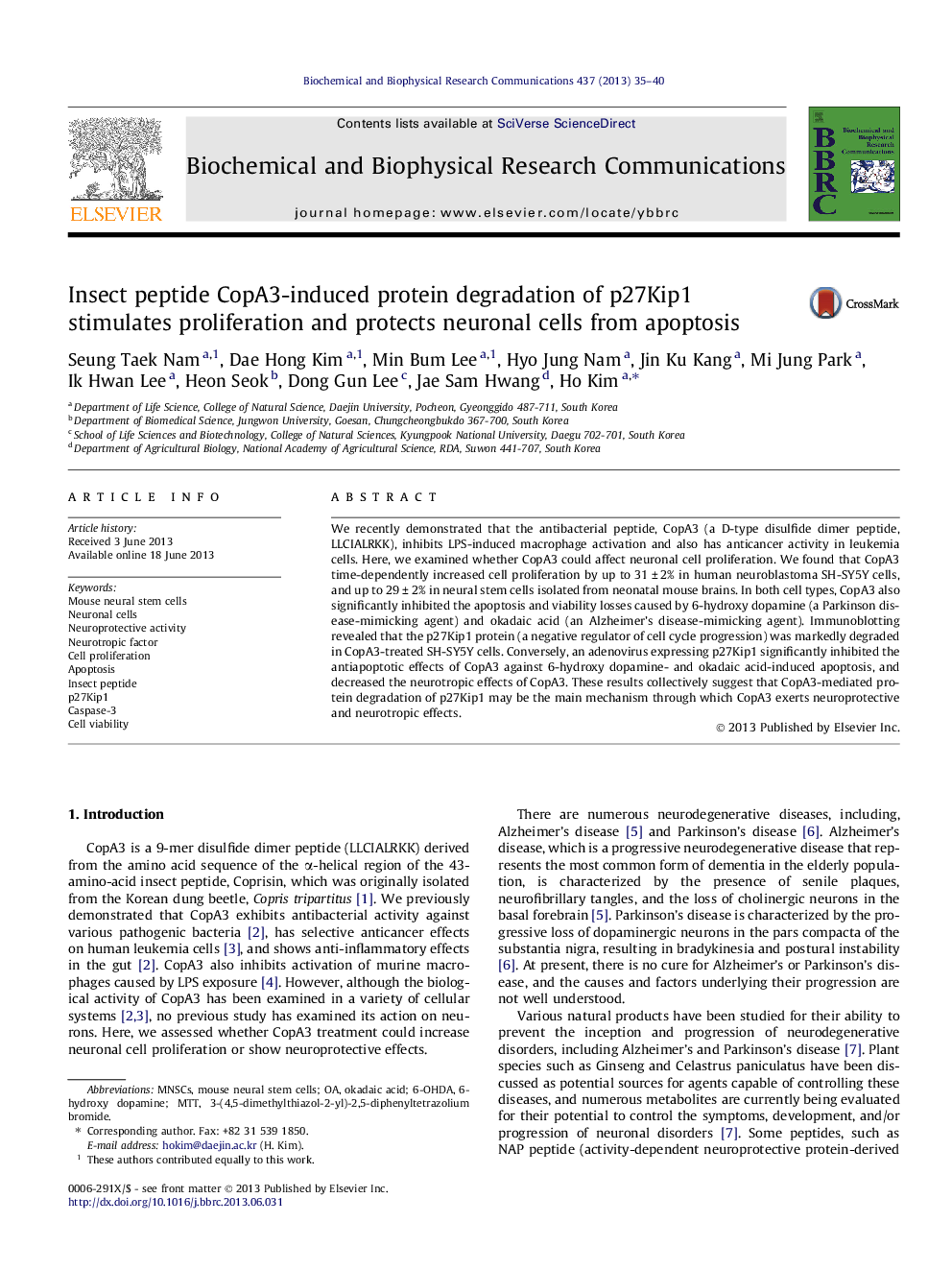| Article ID | Journal | Published Year | Pages | File Type |
|---|---|---|---|---|
| 1928665 | Biochemical and Biophysical Research Communications | 2013 | 6 Pages |
•CopA3 peptide isolated from the Korean dung beetle has antimicrobial activity.•Our study reported that CopA3 has anticancer and immunosuppressive effects.•We here demonstrated that CopA3 has neurotropic and neuroprotective effects.•CopA3 degrades p27Kip1 protein and this mediates effects of CopA3 on neuronal cells.
We recently demonstrated that the antibacterial peptide, CopA3 (a D-type disulfide dimer peptide, LLCIALRKK), inhibits LPS-induced macrophage activation and also has anticancer activity in leukemia cells. Here, we examined whether CopA3 could affect neuronal cell proliferation. We found that CopA3 time-dependently increased cell proliferation by up to 31 ± 2% in human neuroblastoma SH-SY5Y cells, and up to 29 ± 2% in neural stem cells isolated from neonatal mouse brains. In both cell types, CopA3 also significantly inhibited the apoptosis and viability losses caused by 6-hydroxy dopamine (a Parkinson disease-mimicking agent) and okadaic acid (an Alzheimer’s disease-mimicking agent). Immunoblotting revealed that the p27Kip1 protein (a negative regulator of cell cycle progression) was markedly degraded in CopA3-treated SH-SY5Y cells. Conversely, an adenovirus expressing p27Kip1 significantly inhibited the antiapoptotic effects of CopA3 against 6-hydroxy dopamine- and okadaic acid-induced apoptosis, and decreased the neurotropic effects of CopA3. These results collectively suggest that CopA3-mediated protein degradation of p27Kip1 may be the main mechanism through which CopA3 exerts neuroprotective and neurotropic effects.
